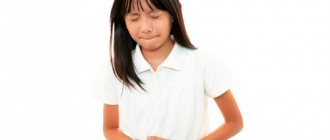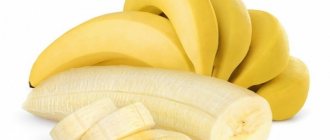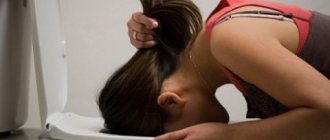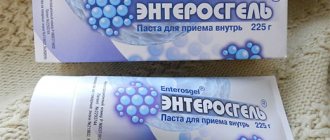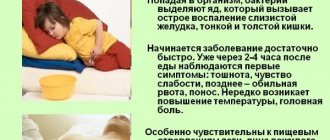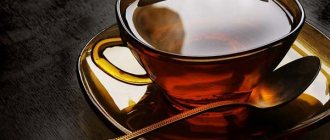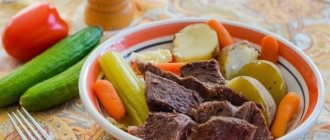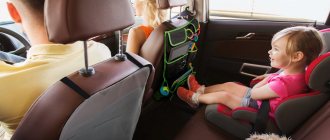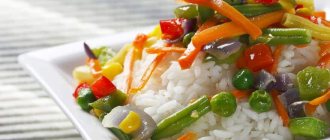Loose stools in children are caused by poisoning, mechanical disorders of the gastrointestinal tract, and intestinal infection. In such situations, diarrhea is considered the first sign of a pathological process in the body. Only a doctor can make the correct diagnosis. Severe loss of fluid leads to the loss of microelements and salts necessary for the development of the baby. At this moment, you need to feed your child with diarrhea dietary dishes. The diet must be carefully selected.
Basic principles of nutrition
There are many reasons for diarrhea, as well as methods for eliminating it. However, the basic principle of proper nutrition in any situation remains easily digestible foods with the highest content of vitamins and microelements. This rule affects everyone, regardless of the child’s age and the pathology that caused the digestive disorder.
The main features of nutrition for diarrhea in children:
- Protein food. When creating a menu, you should pay special attention to protein products. Animal protein, found in eggs, fish, and meat, helps maintain the liver, which is suffering from a toxic infection, improves well-being, and gives strength. As for milk protein, you need to be careful; introduce fermented milk products a little at a time and with a small percentage of fat content. Kefir will help normalize intestinal microflora, reducing the risk of diarrhea.
- Fats. Fat intake during the acute period of diarrhea should be reduced. The symptom reduces appetite and can lead to dehydration. Because of this, the performance of enzymes that metabolize fatty acids is damaged.
- Carbohydrates. Products containing this substance should be consumed in small quantities. Moreover, the main thing that should be given is various cereals and carefully processed vegetables. Fresh fruits and vegetables can increase fermentation processes. Therefore, these fortified products are recommended to be consumed during the recovery period.
It is forbidden to give cow's milk to a baby with digestive problems. It can increase diarrhea, leading to a deterioration in the child’s well-being.
When you may need medical help
Diarrhea in children is a fairly common phenomenon, so it does not cause any particular concern for parents. You can cope with this disease at home by following proper nutrition. If the measures taken do not help, and the symptoms only worsen, or diarrhea does not go away, then you should immediately consult a doctor. So, in what specific situations is it worth going to specialists:
- diarrhea lasts more than two days;
- the skin has acquired a white or blue tint;
- the child gets tired too quickly and behaves sluggishly;
- significant volume of stool;
- elevated temperature;
- the presence of mucus or blood in the stool;
- black stool.
If a child exhibits at least one of these signs, then you should not delay contacting a doctor. Tests will be taken to determine the true causes, and the doctor will prescribe adequate treatment. For such problems, it is forbidden to self-medicate, especially to give medications that are intended for adults. This will only make things worse. The only thing that is allowed to be done is to help the child’s intestines cope with the painful condition using a diet for these purposes.
Do not forget that the diet for childhood diarrhea should be based on foods that are gentle on the intestines. An incorrect diet at this time can provoke the development of complications. Follow medical recommendations, monitor the water-salt balance in the body, then the recovery will be successful and the child will return to his normal lifestyle.
General recommendations
To normalize the condition, doctors recommend adhering to the following rules:
- when a child has diarrhea, for the first half of the day you can’t eat anything except water and sorbents. Then rice porridge is allowed, but not more than 100 g;
- It is necessary to start feeding gradually; it is allowed to give boiled potatoes, bananas, natural apple juice;
- to prepare the body for regular food, give the baby low-fat varieties of fish, meat, day-old bread, crackers;
- The permitted dish is a steamed omelette;
- jelly from berries and pureed dishes have a positive effect on the digestive system;
- include low-fat soups in the diet;
- Baked apples will help normalize stools and restore the body;
- during diarrhea, rice and oatmeal will provide an effective result; they envelop the intestinal walls.
If the gastrointestinal tract is disrupted, it is necessary to provide the child with small and frequent meals (feed every 2 hours, in small portions). Steamed or boiled dishes will be the best option. The lack of food should be replaced with liquid. You can replenish your body with simple purified water or Regidron.
When a baby refuses to eat food, there is no need to force him. This will cause vomiting and complicate the child’s condition.
How to feed children 1, 2, 3, 4 and 5 years old according to Komarovsky?
Follow your diet. What should it be like?
First - no food. Then you can have freshly cooked rice, a very, very modest portion. The liquid in which this rice was cooked must be drunk.
The task before you is to provide the weakened body with such a set of products so that its normal functioning is restored. But don't rush to a normal diet. You can feed your child with diarrhea bananas. Drink apple juice. Boiled potatoes will come in handy.
Introduce stale white bread or crackers into your diet. Meat - lean (pork and lamb, ducks and geese - not allowed). Fish is also lean. It is better to cook dishes from them by steaming them. Serve pureed. Fall in love, at least temporarily, with jelly. The tea and coffee are not strong. Forget about soda and sweet water in general. For now, anyway, forget it.
Dairy products should not be eaten if you have diarrhea. Only low-fat fermented milk products can be fed to your baby.
Complete exclusion of fatty and smoked foods. Instead - porridges that restore the mucous membrane. Soups have the same effect.
Enjoy the wonderful properties of baked apples. They can be eaten by a child with diarrhea. They will be very useful during the period of recovery of the body after diarrhea.
Not only the diet, but also the regime. Perhaps the diarrhea that has shaken you up will be the reason for your diet. And you will finally stop sitting at the computer long after midnight, eating chips and popcorn, washing them down with cola. The stomach has the right to rest. Even when it doesn't give you a signal. And if we are talking about rest, do not force him literally the night before bed to process the chicken or steak you swallowed. There is an ironclad rule: if you don’t want to have problems with the stomach and intestines, maintain hygiene in preparing and eating food, do not overuse fatty, salty, sweet, spicy and starchy foods.
Rice and oatmeal - in any weather. And during rehabilitation after debilitating diarrhea, it is mandatory to feed the child with diarrhea. Look at these products in a new way: they are just right for enriching the affected mucosa. But then they are good. After all, why are you worse than an Englishman who cannot imagine himself without oatmeal for breakfast? And he won’t refuse pudding. Is this why statistics ignore the frequency of cases of diarrhea in Foggy Albion? It may very well be that oatmeal protects against such a nasty disease.
Diarrhea is classified by doctors as repeated bowel movements, accompanied by intense excretion of liquid feces. This condition can be especially dangerous for babies, due to rapid dehydration. Parents need to become familiar with what to feed their children with diarrhea in order to help the child cope with the disorder normally.
Diet for infants
Until recently, doctors believed that food for diarrhea in children should be excluded. But this is completely wrong, since an acute lack of nutritional components can negatively affect the development and growth of the baby. This is especially true for children under one year old; for them, sudden weight loss threatens with tragic consequences.
You need to feed your baby. Mother's milk is an excellent remedy that will restore strength and speed up recovery. If there is no vomiting, the baby should be put to the breast on demand.
For bottle-fed babies, the diet will need to be adjusted, taking into account the individual characteristics of the small organism. You can feed your baby 50 ml of formula every 2 hours. From six months, when complementary feeding has already been used, rice porridge with water is allowed.
And what is equally important, if you have diarrhea, you should not introduce untested foods that are new to your baby into the diet.
Useful video about treating diarrhea in a child
We recommend reading: Can there be snot during teething?
Diarrhea is an unpleasant and alarming phenomenon. An adult can be patient with his condition, take medications and follow a diet. For kids, everything is more complicated. Toddlers under one year of age and a little older are especially affected. They cannot yet explain to adults the reason for their anxiety.
And this results not only in liquid troubles in the potty, but also in increased body temperature and loud, demanding crying. The second point that worries toddlers and their parents is what to cook for the baby and how to feed him if he has diarrhea?
Feeding after a year
During the first 2-3 days of the disease, increase the amount of food consumed by 2 times, that is, feed the child after diarrhea 5-6 times a day. Reduce the amount of food. If the manifestation is severe, you can skip a couple of feedings if the baby does not want to eat.
Increase the amount of food throughout the week. From the very beginning, feed him slimy vegetable soup with the addition of buckwheat, rice, and oatmeal. It is allowed to cook porridge in water.
At 2 years old and younger children, grind all dishes until pureed. You can give berry jelly to a child aged 2 years or more; blueberries have a beneficial effect.
The following products should prevail in the children's menu:
- Dietary dishes from the first day include fermented milk products (narine, biokefir), exclusively fresh, without additives.
- On the next day, crackers and biscuits are allowed.
- On the third day - banana puree, low-fat cottage cheese. Baked apples are very healthy.
- After 3-4 days, if you have diarrhea, you can eat minced meat dishes. Use only lean meat (chicken, veal). Steamed fish meatballs and cutlets are very useful.
Any food is served warm. Hot or cold food irritates the gastric mucosa. After the diarrhea stops, you should follow a gentle diet for about 6 more days. In certain situations, dietary nutrition is prescribed for another 3 weeks. This is determined by the causative factors and severity. Cow's milk is allowed only after 14-21 days, when the child switches to the regular menu.
Prohibited foods for diarrhea
If feces are formed in liquid form, from the first day there is no need to give food that activates the functions of the stomach and intestines. They can increase diarrhea and make the situation worse.
Eliminate the following foods from your diet:
- cabbage, tomatoes, beets, melon;
- mushrooms;
- legumes;
- fatty meat, fish;
- prunes, dried apricots, grapes;
- citrus;
- milk, yogurt, sour cream;
- fruit drinks;
- rich soups, broths;
- barley, millet cereals;
- coffee, cocoa;
- sweets;
- nuts;
- chips, crackers.
Avoid cream, fresh vegetables and fruits. Juices, soda, and baked goods should be excluded. Reduce the amount of sugar you consume.
The doctor will tell you what diet a child should have after diarrhea. Without a doubt, you should not eat fried foods, marinades, or smoked foods.
What should a child absolutely not eat during diarrhea and immediately after it?
Foods that a baby should absolutely not eat if he has diarrhea, dyspepsia, or problems with the gastrointestinal tract:
- raw vegetables;
- Borodino bread;
- mushrooms and legumes;
- sweet store-bought drinks, soda.
The diet must be followed for two weeks, no less. Give all drinks to your child warm.
The temperature of the food consumed should generally be comfortable - cold or hot drinks and dishes damage the mucous membrane and prevent the gastrointestinal tract from normalizing its functions. You should not cook soups with rich fatty broths; you should not give your child fried, fatty, sweet, or floury foods. The exception is yeast-free baked goods, marmalade and marshmallows in small quantities. Cook porridge with water, not milk.
Drinks for diarrhea
Since during diarrhea the body loses the maximum amount of fluid and microelements, an important point is their replenishment. If the baby is not vomiting, drinking plenty of water can restore the water balance. It is good to use special pharmaceutical solutions (Regidron, Gastrolit).
To prepare the product, dilute 1 sachet in 1 liter of water. The liquid should be warm, boiled. Give the child 10-30 ml every 20 minutes. The volume depends on the level of symptom complexity and age.
The following drinks are used to treat diarrhea:
- weakly brewed black tea;
- green tea, unsweetened;
- decoction of dried fruits, chamomile, rose hips;
- raisin drink;
- fruit drink from various berries;
- carrot-rice broth;
- mineral healing water;
- blueberry compote.
In case of poisoning, a saline solution is very effective; you can prepare it yourself. Add salt, baking soda (½ teaspoon each) and 1 tablespoon of sugar to 1 liter of plain water.
